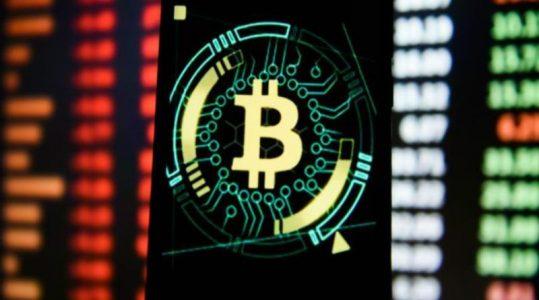
How Hamas terrorist group avoid sanctions by using cryptocurrencies
Hamas has seen a surge in digital donations in the form of cryptocurrencies, the report said, citing a Hamas official and online data. Using digital coins like bitcoin to receive funds from abroad allows the blacklisted group to circumnavigate sanctions.
“There was definitely a spike” in cryptocurrency donations, a Hamas official who spoke to the Wall Street Journal on condition of anonymity was quoted as saying. “Some of the money gets used for military purposes to defend the basic rights of the Palestinians,” they added.
According to the report, two websites linked to Hamas’ military wing, the Ezz-Al Din Al-Qassam Brigades, saw an uptick in traffic from the Arab world during the 10 days of fighting last month. Both saraya.ps and the website and Telegram channel linked to alqassam.ps led what can be termed a donation drive of sorts.
“In Arabic, English and Hebrew editions alqassam.ps… offers an animated video soliciting bitcoin donations that gives prospective donors advice on how to conduct the transaction anonymously while avoiding regulators. The al-Qassam Brigades’ video tutorial advises prospective donors to use public computers and software to obscure their location and cryptocurrency platforms based in the British Virgin Islands and the Seychelles.”
Hamas is designated a terrorist organization by the United States and the European Union. Others, including Britain, have proscribed only the al-Qassam Brigades. Such a designation means that, in the U.S. for instance, it is illegal to provide money or training, with financial firms in control of related funds obliged to report them to the authorities.
The Hamas official that spoke with the Wall Street Journal refused to say how much money the group raised in digital coinage, but did say cryptocurrencies were increasingly a larger part of their overall income. The report noted that roughly $1 million in digital currencies linked to Hamas were seized last year by U.S. authorities.
The surge in donations highlight how Hamas has turned to cryptocurrencies to circumnavigate sanctions. “Our fundraising strategies keep on evolving as more restrictions are being placed on us,” the Hamas official told the financial daily.
Reuters reported in 2019 on how Hamas was adopting increasingly complex mechanisms to be able to receive digital coins despite the legal restrictions on them. While their first digital donation drive saw the cryptocurrency deposited in a single digital wallet, by late 2019 Hamas had created a new system that generated a new wallet for every donation.
This makes it harder for companies around the world to keep tabs on the group’s cryptocurrency financing, researchers who worked with Reuters explained. A single digital wallet can be red-flagged to cryptocurrency exchanges, in theory allowing them to prevent funds moving through their systems to that destination.
At the time, a similar two-minute video on the al-Qassam Brigades website laid out step-by-step instructions in Arabic on how supporters can avoid the traditional financial system and donate cryptocurrency. “How to support the Palestinian resistance via Bitcoin?” it asks.
With polished graphics and English subtitles, it explains how to send bitcoin directly, through a money-exchange office, or via a cryptocurrency exchange. “Use a public device so that the wallet is not linked to your IP address,” it says.
Regulators and law enforcement agencies have long worried about the potential of digital money – relatively anonymous and easily available online – to finance terrorism. Cryptocurrency regulations vary from country to country.
In the U.S., federal investigators said recently that a proposal to register bitcoin accounts would be especially helpful for identifying drug smugglers, human traffickers and terrorists. Last month, the U.S. Department of Justice established a government group to tackle ransomware attacks by piercing the anonymity of cryptocurrency transactions, used by hackers and criminals.
However, many of the exchanges, which conduct the critical operation of turning cryptocurrency into dollars or other widely accepted currencies, are in countries outside the reach of U.S. regulators.
Source: The World News





